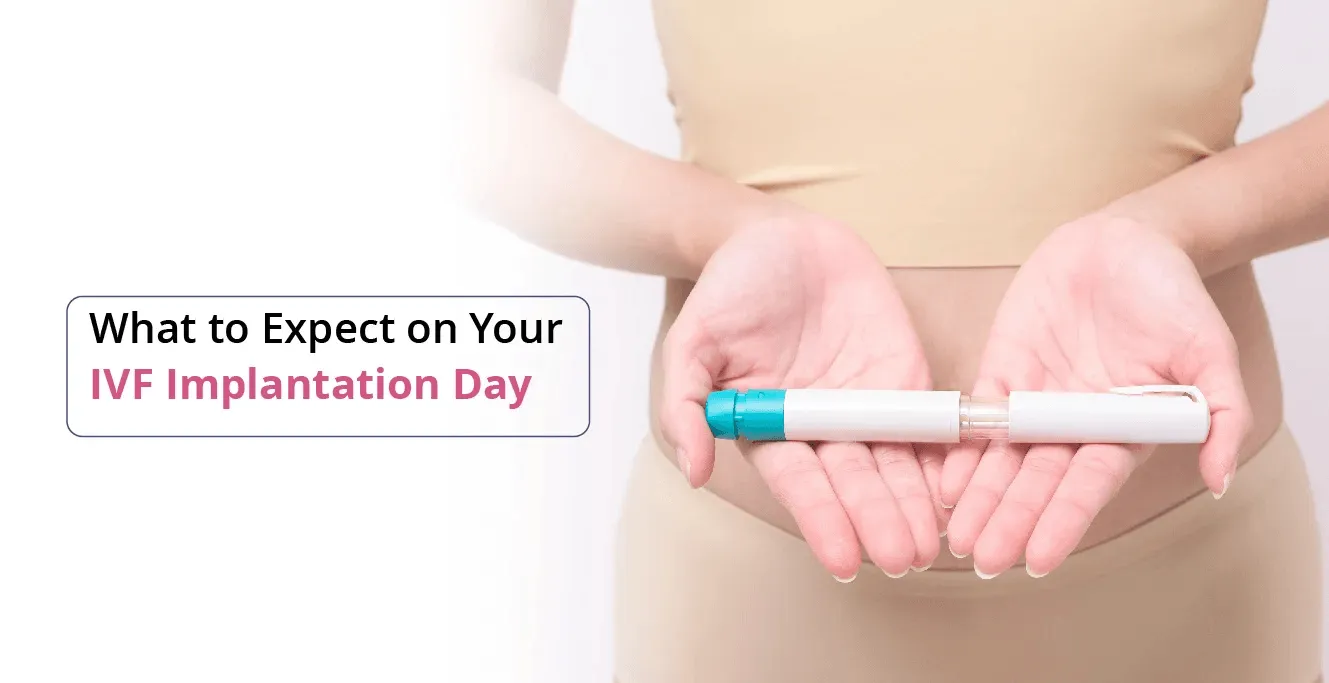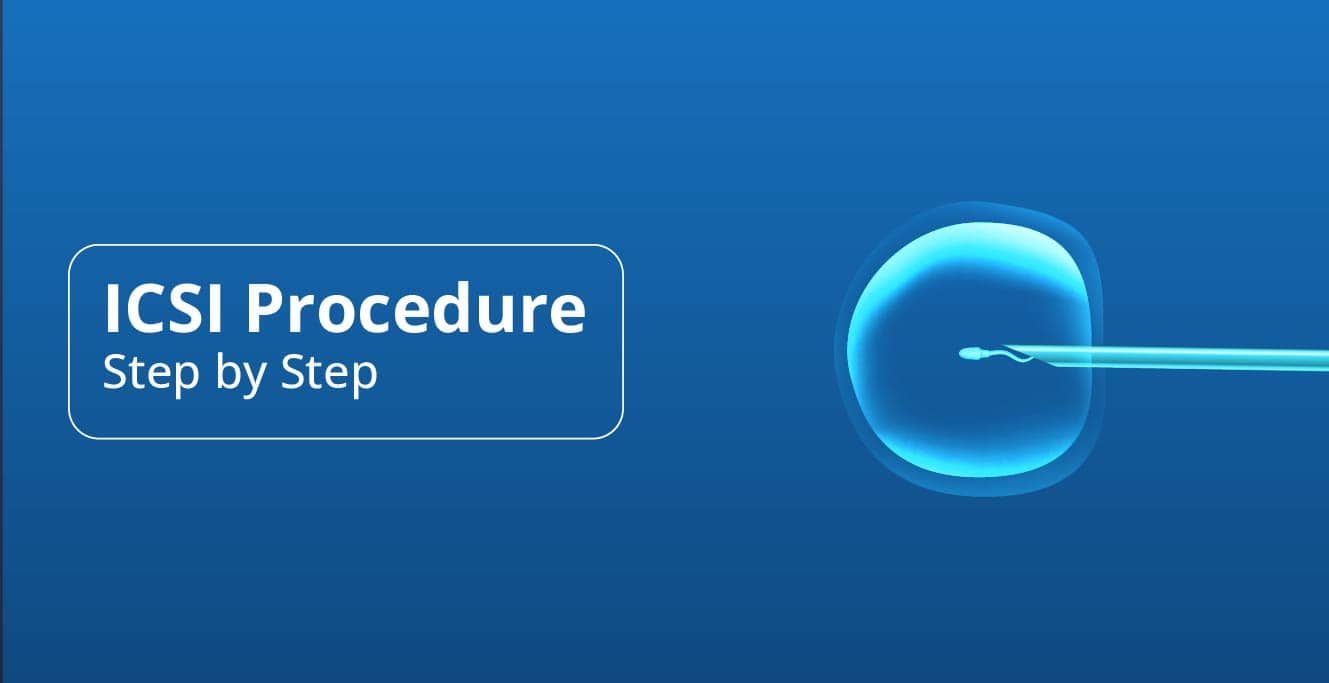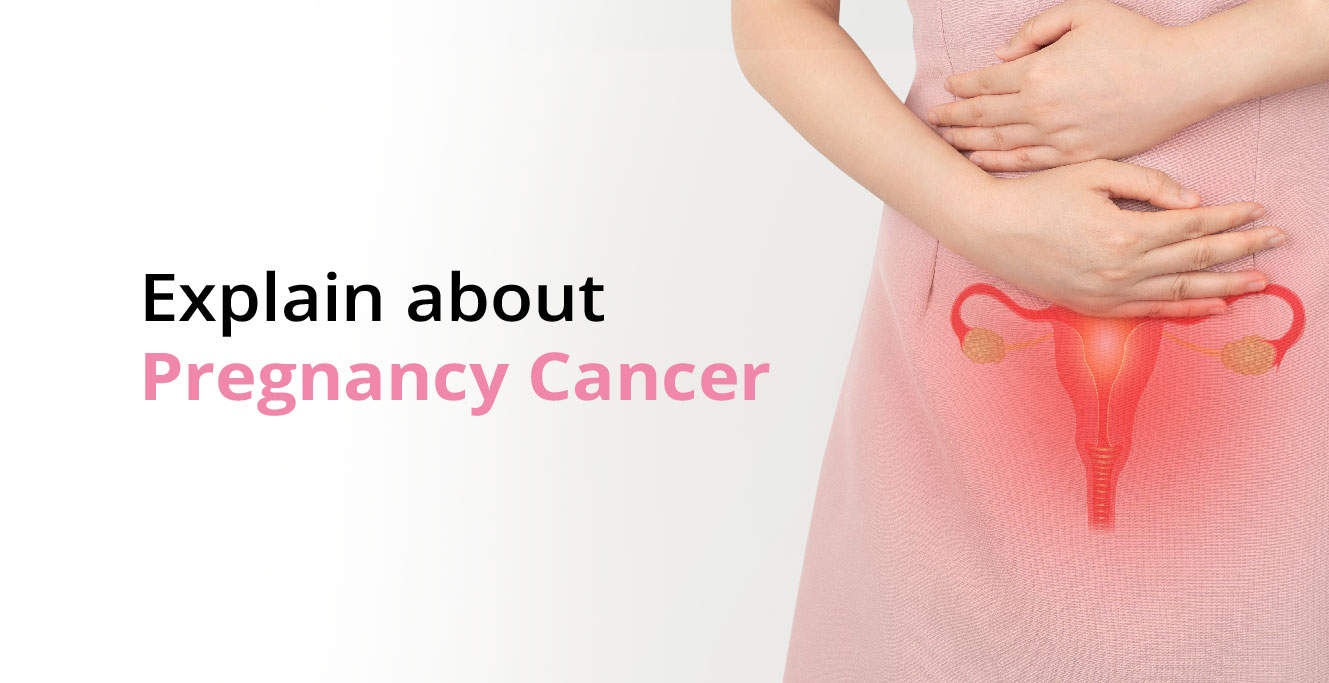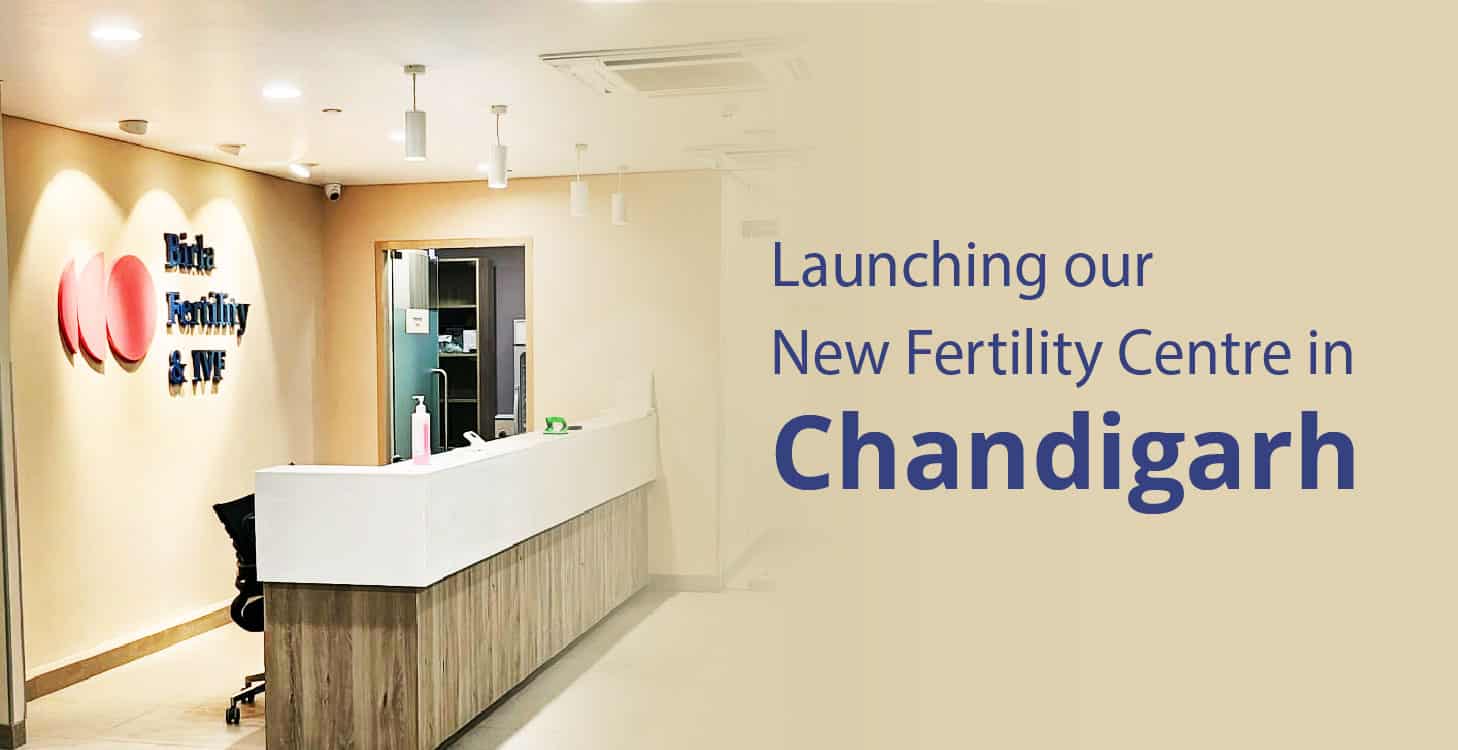How Endometriosis Surgery Can Bring Relief and Restore Fertility
- Published on January 05, 2024
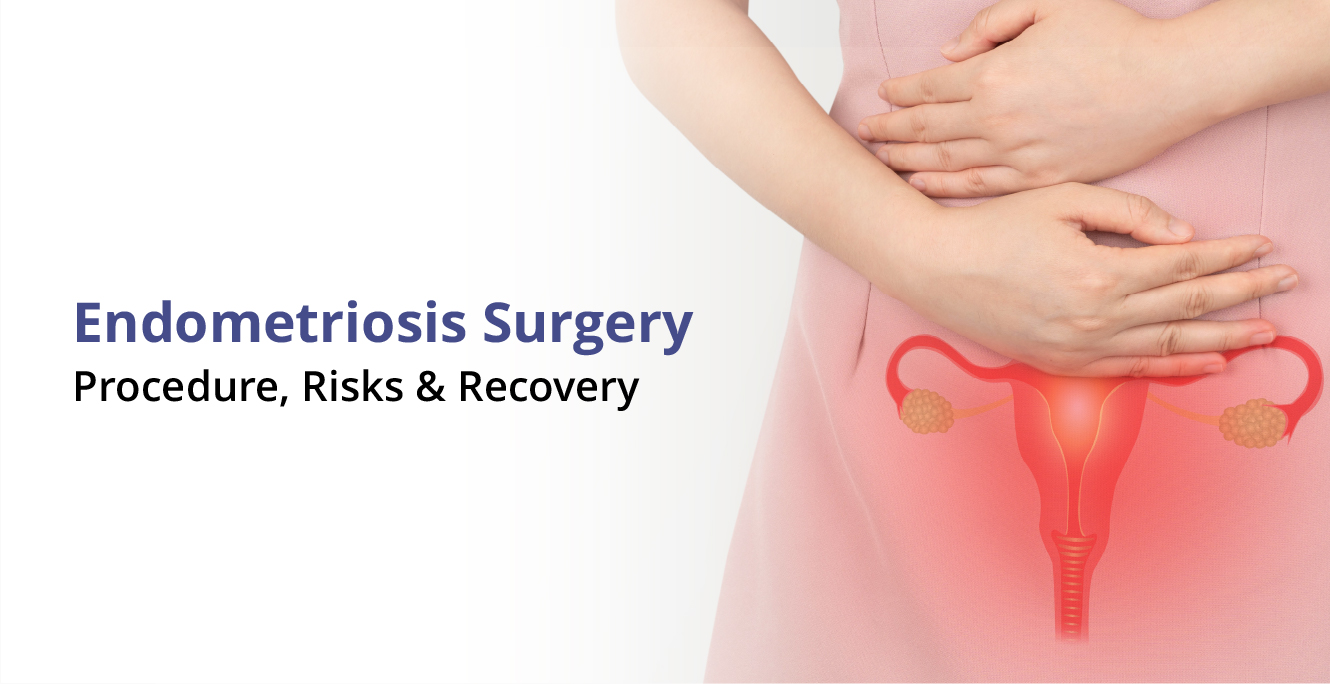
Many women worldwide suffer from endometriosis, a disorder in which tissue resembling the lining of the uterus grows outside the uterus. In addition to producing excruciating agony, it frequently raises fertility questions. Let us introduce endometriosis surgery, a method that has completely changed the course of many people’s treatment. In this article, Let’s examine endometriosis surgery’s significance and its many advantages in more detail.
Table of Contents
Causes of Endometriosis
A disorder known as endometriosis occurs when tissue that resembles the lining of the uterus grows outside of it. Although the specific aetiology of endometriosis remains unclear, multiple variables are thought to have a role in its development:
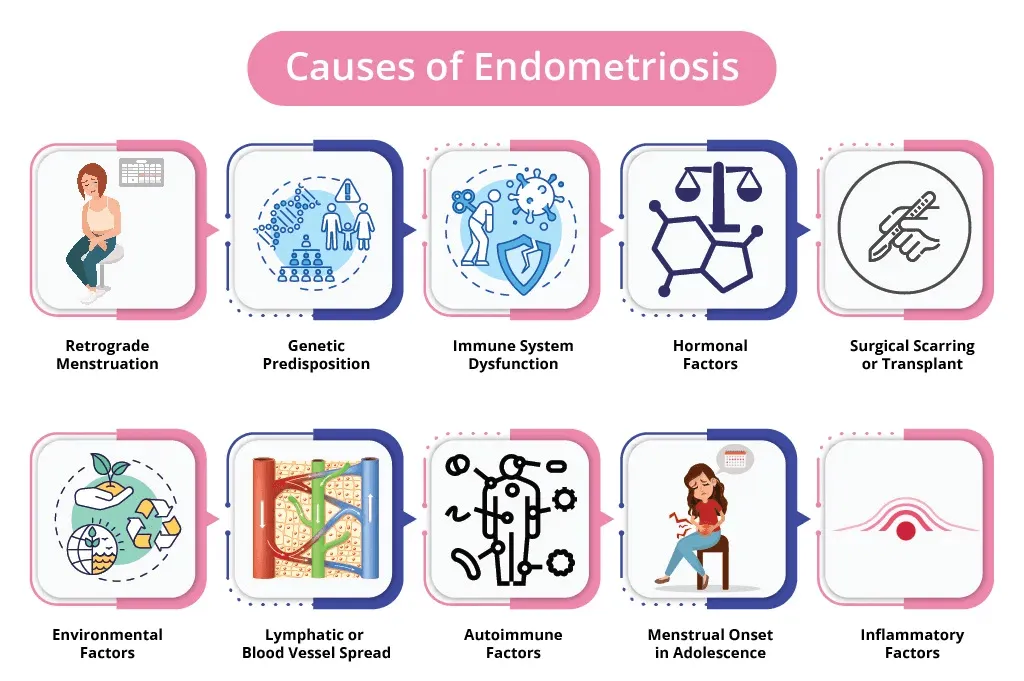
- Retrograde Menstruation: The hypothesis of retrograde menstruation is widely held. This happens when endometrial cells seen in menstrual blood move backwards into the pelvic cavity rather than out of the body. These dislocated cells are able to develop by adhering to the pelvic organs.
- Genetic Predisposition: There is proof that endometriosis and genetics are related. Women who have close relatives with the illness may be more likely to get it themselves.
- Immune System Dysfunction: Endometrial tissue growing outside the uterus may not be recognised and eliminated by the immune system due to an abnormal reaction. This may enable the tissue to grow and implant in unusual places.
- Hormonal Factors: Endometriosis may spread more readily when oestrogen, a hormone that controls the menstrual cycle, is present. When oestrogen levels are reduced during pregnancy, the illness frequently becomes better and can be controlled with hormone therapies.
- Surgical Scarring or Transplant: During surgical operations like hysterectomies or caesarean sections, endometrial cells may inadvertently spread to other regions. Endometriosis may occur as a result of this.
- Environmental Factors: Endometriosis may occur as a result of exposure to specific chemicals and toxins found in the environment. To comprehend the possible impact of environmental elements, research is still being conducted.
- Lymphatic or Blood Vessel Spread: According to certain ideas, endometrial cells may travel to different areas of the body via the lymphatic or blood vessels, resulting in the development of endometriotic lesions.
- Autoimmune Factors: Endometrial cells developing outside the uterus may be causing an autoimmune response, in which case the immune system may not be able to properly eliminate them.
- Menstrual Onset in Adolescence: Menarche, or the early start of menstruation, may be linked to an increased risk of endometriosis.
- Inflammatory Factors: Endometriosis may develop and worsen as a result of persistent inflammation in the pelvic area.
Significance of Endometriosis Surgery
The goal of endometriosis surgery is to eliminate the tissue growths outside the uterus that resemble endometrial tissue. The degree and kind of surgery are determined by the patient’s reproductive objectives, symptoms, and the severity of the ailment.
Pain Reduction for Chronic Conditions
The ongoing pelvic pain that endometriosis produces is one of its most crippling features. This pain can be reduced surgically by:
- Removing Endometrial Growth: Pain can be greatly decreased by addressing and removing the endometrial growth.
- Liberating Adhesions: Organ adhesions may result from endometriosis. By releasing these adhesions, surgery can return organ mobility and function to normal.
Restoring Fertility
A major worry for a lot of endometriosis-affected women is infertility. The illness may cause pelvic anatomy to be distorted, impede the fallopian tubes, or adversely affect the environment for conception. * Open Blocked Tubes: If endometriosis blocks the fallopian tubes, surgery may be able to remove the obstruction and increase the likelihood of a spontaneous conception.
- Correct Anatomical Distortions: The pelvic anatomy may be altered by endometriosis. Restoring the native structure through surgery enables better reproductive function.
- Create a Favourable Environment: Surgery can improve the conditions for implantation and pregnancy by eliminating endometrial growth and reducing inflammation.
Enhancing Quality of Life
In addition to restoring fertility and relieving pain, endometriosis surgery can improve a woman’s general quality of life. When the underlying source of the symptoms is addressed, patients frequently report:
- Better Mental Health: Relieving long-term pain helps lessen the anxiety and despair that come with it.
- Enhanced Physical Comfort: After surgery, many women say they feel physically better, which encourages them to be more active and perform better on a regular basis.
Pregnancy After Endometriosis Surgery
It is possible to become pregnant following endometriosis surgery, and for many women, this can increase their chances of becoming pregnant. Here are some important things to think about:
- Enhanced Fertility: The goal of endometriosis surgery is to eliminate or minimise the proliferation of endometrial tissue outside the uterus. By doing this, it might reduce discomfort and enhance fertility by fostering a more favourable setting for conception.
- Timing of Conception: The best time to become pregnant after endometriosis surgery is usually in the months that follow the treatment. The chance of successful fertilisation can rise due to the improved environment in the pelvis.
- Individual Factors: Success rates differ from person to person. The likelihood of conception after surgery can be influenced by a number of factors, including age, general health, the severity of endometriosis, and the existence of other fertility problems.
- Laparoscopic Surgery: Laparoscopic surgery is a minimally invasive method used in many endometriosis operations. Compared to open surgery, this frequently results in shorter recovery times, enabling women to continue their fertility efforts sooner.
- Assisted Reproductive Technologies (ART): IVF and other assisted reproductive technologies may be suggested when natural conception proves difficult. A number of variables, like as the woman’s age and the calibre of her partner’s sperm, might affect the outcome of ART.
- Ovulation monitoring: By identifying fertile times, following menstrual cycles, utilising ovulation predictor kits, or getting regular ultrasounds can all help monitor ovulation and increase the likelihood of conception.
- Consultation with a Fertility doctor: It is recommended that couples who are having trouble conceiving following endometriosis surgery consult with a fertility doctor. They can carry out in-depth evaluations, look into alternative fertility therapies, and offer tailored advice.
- After Surgery Follow-up: Maintaining regular contact with the fertility expert is essential to track the recovery from surgery and quickly address any new problems.
Benefits of Endometriosis Surgery Under Different Circumstances
- Addressing the Root Cause: Direct Removal of Endometrial Tissue
Why it Matters: The majority of endometriosis-related discomfort and difficulties are brought on by the development of endometrial tissue outside of its typical place.
Benefit: Patients frequently have instant relief from persistent pelvic discomfort after having these misplaced tissue patches surgically removed or destroyed, which enhances their quality of life daily.
- Restoring Anatomical Harmony: Correcting Distortions and Blockages
Why it Matters: Endometriosis can cause pelvic architecture to be distorted, which can impair natural conception by causing organs to clump together or clog the fallopian tubes.
Benefit: By realigning and freeing up these organs, surgery can guarantee that they operate at their best. This adjustment can be a game-changer for patients who are experiencing infertility owing to anatomical deformities, giving them fresh hope for naturally becoming pregnant.
- Reducing Inflammation: Creating a Conducive Environment for Conception
Why it Matters: Endometriosis is characterised by chronic inflammation, which makes the environment unfavourable to conceiving and getting pregnant.
Benefit: Surgery can aid in establishing a more favourable uterine environment by treating and eliminating inflammatory tissue regions. This can greatly increase the likelihood of a healthy pregnancy and successful implantation.
- Alleviating Associated Complications: A Holistic Approach to Treatment
Why it Matters: Beyond discomfort and issues with fertility, endometriosis can worsen the condition by causing adhesions and ovarian cysts, among other consequences.
Benefit: Surgery for endometriosis provides a comprehensive strategy that addresses related issues as well as apparent growths. Over time, improved reproductive health can be ensured and future difficulties can be avoided with this all-encompassing treatment.
Conclusion
Endometriosis surgery is a ray of hope for those struggling with the disorder’s difficulties. It gives numerous women a new lease on life by addressing the underlying causes of the condition head-on, correcting anatomical deformities, and fostering an environment that is conducive to conception. It’s important to speak with medical professionals before undergoing any medical procedure, but for many people, this surgery has been a game-changer towards living pain-free and realising their ambition of beginning or growing a family.
Frequently Asked Questions (FAQs)
- Is surgery the only treatment for endometriosis, and how successful is it in improving fertility?
One treatment option for endometriosis is surgery, especially if it affects fertility. While there are differences in the success rate of increasing fertility, many women report improved reproductive outcomes after surgery.
- How soon can I try to conceive after endometriosis surgery, and does it guarantee pregnancy?
The length of time needed to recuperate from surgery varies. In a matter of weeks, some women might start trying again to become pregnant. Even while surgery makes it easier to conceive, there are still many other aspects that must be considered.
- Are there risks or complications associated with endometriosis surgery?
As with any surgery, there are dangers associated with endometriosis surgery, including bleeding, infection, and damage to adjacent structures. Making an informed decision requires talking with the surgeon about the advantages and possible hazards.
- If endometriosis surgery doesn’t lead to pregnancy, what are the next steps?
If following surgery there is no pregnancy, more fertility testing may be required. This might entail the use of assisted reproductive technologies (ART), such as in vitro fertilisation (IVF), which can provide extra help in getting pregnant. Consulting with a fertility professional is advised.
Related Posts
Written by:
Dr. Aashita Jain
Consultant
Dr. Aashita Jain is a dedicated fertility specialist with over 11 years of extensive experience. With expertise in reproductive medicine, she is also a member of prestigious medical organizations, including FOGSI, ISAR, IFS, and IMA. She has made significant contributions to the field through her research and co-authored papers.
Surat, Gujrat
Our Services
Fertility Treatments
Problems with fertility are both emotionally and medically challenging. At Birla Fertility & IVF, we focus on providing you with supportive, personalized care at every step of your journey towards becoming a parent.Male Infertility
Male factor infertility accounts for almost 40%-50% of all infertility cases. Decreased sperm function can be the result of genetic, lifestyle, medical or environmental factors. Fortunately, most causes of male factor infertility can be easily diagnosed and treated.We offer a comprehensive range of sperm retrieval procedures and treatments for couples with male factor infertility or sexual dysfunction.
Donor Services
We offer a comprehensive and supportive donor program to our patients who require donor sperm or donor eggs in their fertility treatments. We are partnered with reliable, government authorised banks to source quality assured donor samples which are carefully matched to you based on blood type and physical characteristics.Fertility Preservation
Whether you have made an active decision to delay parenthood or are about to undergo medical treatments that may affect your reproductive health, we can help you explore options to preserve your fertility for the future.Gynaecological Procedures
Some conditions that impact fertility in women such as blocked fallopian tubes, endometriosis, fibroids, and T-shaped uterus may be treatable with surgery. We offer a range of advanced laparoscopic and hysteroscopic procedures to diagnose and treat these issues.Genetics & Diagnostics
Complete range of basic and advanced fertility investigations to diagnose causes of male and female infertility, making way for personalized treatment plans.Fertility Calculators
Empower your journey to parenthood with our fertility calculators. Accurate, personalized guidance for your fertility goals.





































